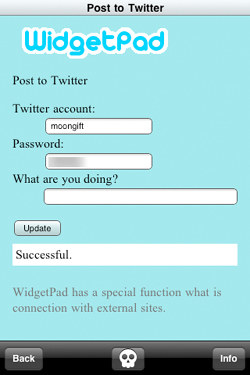
First, Let Us Understand What a Mobile App Is:
A mobile application, commonly known as an app, is a kind of an application software which is specifically designed to run on a mobile device like a smartphone or a tablet.
You can develop your app within minutes and take all the advantages for the growth and development of your business. There are lots of best mobile app development platforms and tools which you can use effectively to develop your business app.
Let us take a look at a few of these efficient and effective mobile app development tools and platforms.
RhoMobile
RhoMobile provides with Rhodes and it is an open-source framework which is based on Ruby. It allows the developers to build native apps across a wide range of OS and smartphones. The range of OS includes Android, Windows Mobile, Symbian, iPhone, and RIM.
The RhoMobile framework is such that you need to write the code only once and then you can deploy it on a variety of platforms. Moreover, the code written can be used to develop apps for a majority of the smartphones. The native apps are great to work with the available hardware and this makes your job easy, speedy and accurate.

PhoneGap
It is a very well-known open source framework used to develop apps for Android, Palm, Symbian, BlackBerry, iPhone, iTouch and iPad devices. The PhoneGap platform uses standard languages like HTML and JavaScript which makes it easy for a person who has a decent knowledge of these to develop an app for any smartphone.
PhoneGap permits the developers to work with device hardware like accelerometer, GPS/location, camera, sound and much more. Additionally, it also offers online training courses and Adobe AIR app to help the developer access native APIs and develop mobile apps on its own platform.

Appcelerator
Appcelerator offers the Titanium Development Platform that allows the developer to build native mobile, tablet, and desktop apps through web programming languages like HTML, PHP, JavaScript, Ruby, and Python. Currently, it powers more than 1000 native apps per month. The best benefit of the Titanium is that it gives the users easy access to more than 300 APIs and location information. It additionally offers easy customization metrics for actions and events.

MoSync
It is a FOSS multi-platform mobile app development SDK tool that is based on standard web programming. MoSync provides the developers with integrated compilers, libraries, runtimes, device profiles and other useful tools. It supports JavaScript, PHP, Ruby, Python and such other languages along with Eclipse-based IDE for C/C++ programming. It will soon be supporting iPhone OS and BlackBerry after the release of MoSync 2.4.

WidgetPad
It is an open-source collaborative environment for the development of smartphone apps. Like other open-source platforms, it also uses standard web technologies like JavaScript, HTML5, and CSS3.
WidgetPad offers features like source code editing, collaboration, debugging, project management, versioning, and distribution. It can be used to create apps for the iOS, Android OS, and WebOS.


Whoop
Though not very well-known, it is a very helpful tool for the non-developers to build apps for smartphones. It means that even if you are not a developer or not well-versed with programming, you can still get some cross-formatting done with Whoop. The only drawback of this platform is that it doesn’t support on the appearance part of your app or else it is worth using for mobile app development.

With Whoop, it is easier to create your app just by the drag-and-drop of the mobile app elements onto it, to achieve your desired effects. Additionally, it allows you to export your app in many formats, depending on the OS, including Windows Mobile, BlackBerry, Android, iPhone and more.
The mobile app development has become a lot easier and also significant for a successful growth and development of your business. So, use the open-source tools and platforms to help your business grow and convert your prospects into loyal customers.

